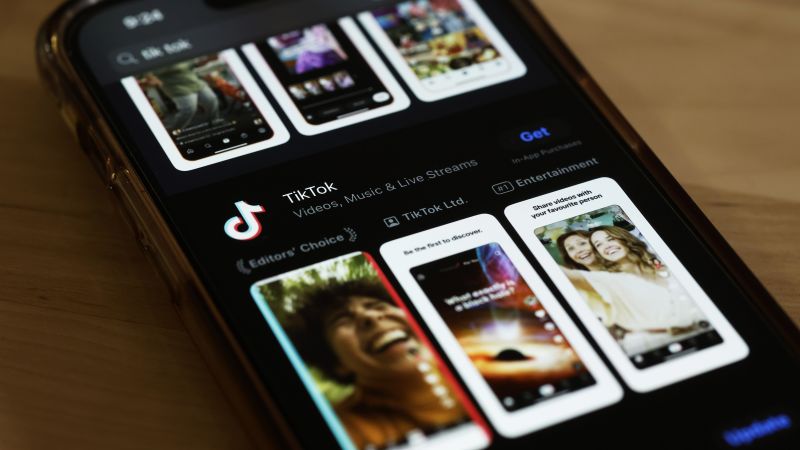Reuters
—
Google-parent Alphabet and Apple must be ready to remove TikTok from their U.S. app stores on January 19, two US lawmakers said in a letter to the companies’ CEOs Friday.
The bipartisan letter came from two leaders of the US House of Representatives’ committee on China: Republican Representative John Moolenaar, who is the committee’s chair, and the group’s top Democrat Representative Raja Krishnamoorthi.
Last week, a U.S. federal appeals court upheld a law requiring China-based ByteDance to divest TikTok in the United States or face a ban. The app is used by 170 million Americans.
Separately, Moolenaar and Krishnamoorthi also urged TikTok CEO Shou Zi Chew to sell the app: “Congress has acted decisively to defend the national security of the United States and protect TikTok’s American users from the Chinese Communist Party,” the lawmakers wrote. “We urge TikTok to immediately execute a qualified divestiture.”
Apple, Alphabet and TikTok did not immediately comment. On Monday, ByteDance and TikTok made an emergency bid to temporarily block the law pending a review by the U.S. Supreme Court.
The Department of Justice said on Wednesday if the ban takes effect on Jan. 19, it would “not directly prohibit the continued use of TikTok” by Apple or Google users who have already downloaded TikTok. But it conceded the prohibitions on providing support “will eventually be to render the application unworkable.”
In response, TikTok said Thursday that—absent a court order—the law means the app will disappear from mobile app stores on Jan. 19 and “be unavailable to the half of the country that does not already use the app.” It warned ending support services will “cripple the platform in the United States and make it totally unusable.”
ByteDance and TikTok noted President-elect Donald Trump has vowed to prevent a ban on TikTok.
Republican Senator Josh Hawley hopes ByteDance will sell TikTok because the law leaves no wiggle room, he said in an interview.
“The statute is what the statute is,” Hawley said. “The main issue is it’s subject to Chinese oversight, Beijing oversight – that’s the problem.”




